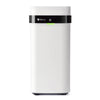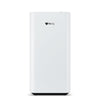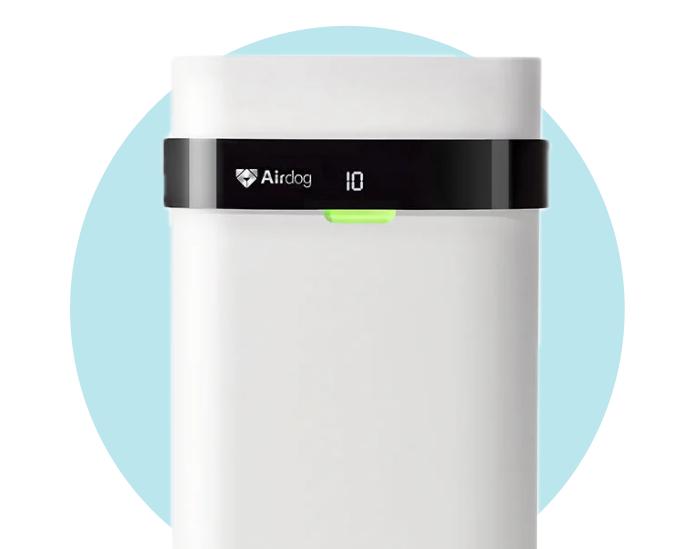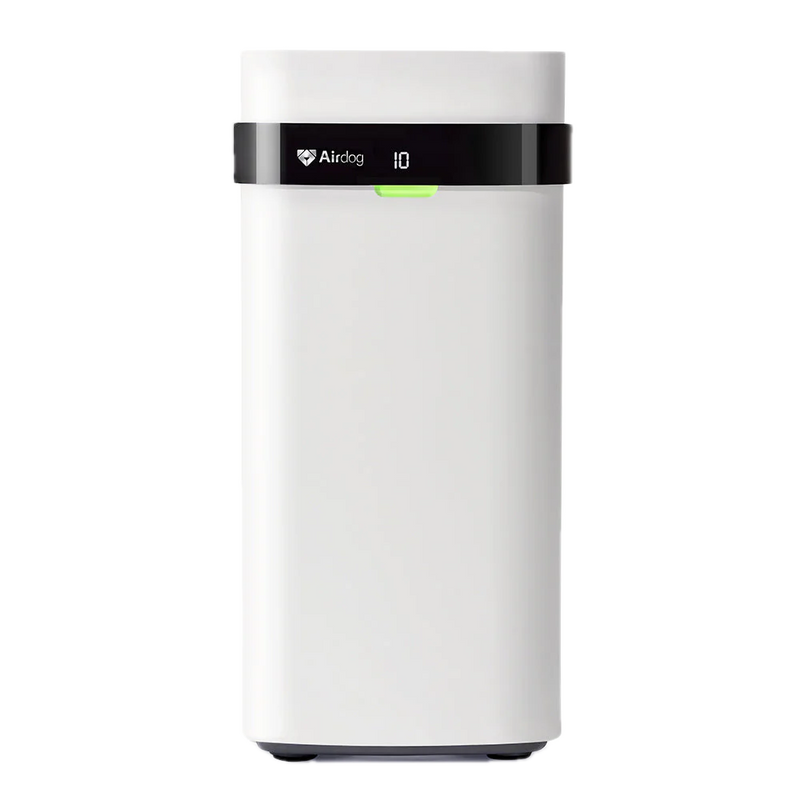Did you know that the air inside your home can be up to five times more polluted than the air outside? For those committed to a healthier, more sustainable lifestyle, this statistic is a call to action. Charcoal filters (also known as active carbon filters) play a crucial role in purifying the air we breathe and the water we drink, directly impacting our well-being and that of our loved ones.
Charcoal filters, particularly activated carbon, are integral to a myriad of everyday appliances, from water purifiers and air purifiers to coffee machines. Their unique ability to absorb impurities, odors, and even certain chemicals makes them invaluable.
This article delves into the essence of charcoal filters, shedding light on their importance in our daily lives. You will gain insight into what charcoal filters are, why they're crucial for air and water purification, and the factors that affect their longevity. By understanding how to optimize the lifespan of your filters, you can ensure a healthier living environment.
Understanding Charcoal Filters
Charcoal filters are integral to maintaining a clean and healthy environment within our homes. Their unique composition and variety, alongside the science behind their purifying capabilities, make them essential for air and water purification.
Composition and Types
-
Activated Carbon: Produced from organic materials with high carbon content such as wood, coconut shells, or peat, activated carbon undergoes a process that increases its surface area, enhancing its adsorption capabilities. This type is prevalent in air and water purifiers due to its proficiency in trapping pollutants.
-
Bamboo Charcoal: Known for its sustainability, bamboo charcoal is derived from the pieces of the bamboo plant. It shares similar adsorptive properties to activated carbon but stands out for its environmental friendliness and faster growth rate. Bamboo charcoal is often used in lifestyle products, including air fresheners and moisture absorbers.
Science Behind Purifying Capabilities
The effectiveness of charcoal filters lies in adsorption, a process where pollutants adhere to the filter's surface. The vast surface area of activated carbon, created through physical or chemical activation, allows it to capture a wide array of contaminants, including volatile organic compounds (VOCs), odors, and chlorine, from air or water. This process, unlike absorption, does not involve the pollutants being taken into the filter's body, making it a highly efficient method for purification.
Technological Advancements and Market Growth
Recent market analysis from cell.hashnode.dev underscores the growing demand for activated charcoal filter sheets, driven by technological advancements that enhance their efficiency and effectiveness. Innovations such as improved activation processes and the development of composite filters that combine activated carbon with other filtering materials have broadened the applications of charcoal filters. The report projects a significant CAGR for the activated charcoal filter sheet market, reflecting an increasing awareness of air and water quality concerns.
Diversity of Applications
-
Water Filtration: Charcoal filters excel in removing contaminants and odors from water, making them a staple in household water purifiers and pitchers. They effectively reduce chlorine, lead, and mercury, contributing to safer drinking water.
-
Air Purification: In air purifiers, activated carbon filters are crucial for capturing gases, odors, and VOCs, providing a cleaner breathing environment. Their ability to absorb a wide range of pollutants makes them invaluable for maintaining indoor air quality.
-
Coffee Machines: Charcoal filters also find their place in coffee machines, where they purify the water before brewing, ensuring the best taste and aroma in your cup of coffee.
The versatility and effectiveness of charcoal filters in removing contaminants, odors, and impurities highlight their indispensable role in promoting a healthier living environment. As technology advances and the demand for cleaner air and water grows, charcoal filters will continue to be a key component in our pursuit of purity in our homes.
Factors Influencing Lifespan
The longevity of charcoal filters is not a simple matter of time ticking away; it's influenced by a myriad of factors that can extend or reduce their effective lifespan. Drawing insights from ipsystemsusa.com, let's delve into the variables that affect how long a charcoal filter lasts, ensuring your appliances perform optimally and continue to provide a healthier living environment.
Continuous Usage
-
Frequency of Use: The more frequently a charcoal filter is in use, the quicker it will reach its adsorption capacity. Continuous operation, especially in devices like air purifiers and water filters that run around the clock, accelerates the accumulation of pollutants on the filter surface.
-
Impact on Lifespan: Regular, uninterrupted use can significantly shorten the filter's lifespan, necessitating replacements within a few months rather than years.
Type of Contaminants Filtered
-
Variety and Concentration: The types of contaminants a charcoal filter needs to capture can also affect its longevity. Filters dealing with a higher concentration of pollutants or more potent chemicals may become saturated more rapidly.
-
Specific Pollutants: For instance, filters tasked with removing heavy smoke or strong odors will likely have a shorter lifespan due to the dense concentration of particles and chemicals they absorb.
Humidity Levels
-
Environmental Conditions: Humidity plays a critical role in the performance and durability of charcoal filters. High humidity levels can clog the pores of a charcoal filter, reducing its efficiency and lifespan by preventing the adsorption process from occurring effectively.
-
Optimal Conditions: Maintaining an environment with controlled humidity can help prolong the filter's life, ensuring it performs efficiently for as long as possible.
Filter's Quality and Design
-
Material and Construction: The quality of the charcoal, the density of the filter, and its design all contribute to how well it can adsorb contaminants and for how long. Higher quality filters with a more sophisticated design tend to have a longer lifespan.
-
Manufacturer's Specifications: Adhering to the manufacturer's guidelines for replacement is crucial. Filters designed for longer use will have been constructed to handle a larger volume of contaminants over more extended periods.
Importance of Manufacturer's Guidelines and Environmental Conditions
-
Guidelines: Manufacturers provide specific recommendations for filter replacement based on extensive testing under a variety of conditions. These guidelines are essential for ensuring the filter continues to operate effectively.
-
Environmental Considerations: External factors, such as air quality and water purity in your region, can also influence the filter's lifespan. Areas with higher pollution levels may require more frequent replacements.
By understanding these factors, individuals can make informed decisions regarding the maintenance of their charcoal filters, optimizing their performance and ensuring the longevity of their devices. Remember, the goal is not just to extend the life of these filters but to maintain the quality of air and water they provide, crucial for a healthier home environment.
Maintenance and Replacement Indicators
Maintaining charcoal filters for optimal performance requires regular monitoring and replacement when necessary. Given the non-regenerable nature of standard charcoal filters, as highlighted by insights from elica.com, understanding the indicators of filter saturation is key.
Signs of Filter Saturation
-
Diminished Water Flow: In water purifiers, a noticeable reduction in water flow often signals filter saturation. As charcoal filters capture impurities, their pores become clogged, restricting the passage of water.
-
Persistent Odors: If odors that were once eliminated by your air purifier begin to linger, or if the water from your purifier has a noticeable taste or smell, it's a clear indicator that the charcoal filter is no longer effectively absorbing contaminants.
-
Drop in Air Quality: An increase in dust or a decrease in overall air quality within your home can indicate that the air purifier's charcoal filter needs replacement. Filters that are saturated cannot effectively remove airborne particles.
-
Coffee Machine Performance: For coffee machines, a change in the taste of the coffee or a slower brewing time might suggest the charcoal water filter is full and needs a change.
Maintenance Tips for Charcoal Filters
-
Regular Checks: Conduct visual inspections of your filters regularly. If the filter appears visibly dirty or clogged, it's time for a replacement.
-
Follow Manufacturer Guidelines: Adhere to the replacement schedule recommended by the device's manufacturer. These guidelines are designed to ensure optimal performance of the charcoal filters within their specific applications.
-
Environmental Considerations: Be mindful of the environment in which your device operates. High-pollutant areas for air purifiers or hard water for water purifiers and coffee machines may necessitate more frequent filter replacements.
Replacement Indicators Across Devices
-
Water Purifiers: Slow filtration rate and an unusual taste or odor in the purified water serve as direct indicators that the charcoal filter requires replacement.
-
Air Purifiers: An increase in allergy symptoms or dust accumulation within your home, despite regular use of your air purifier, signifies that the filter is due for a change.
-
Coffee Machines: Changes in coffee flavor or sediment present in your brewed cup are tell-tale signs that the water filter is saturated and needs replacement.
Incorporating these maintenance and replacement practices ensures that your charcoal filters continue to perform efficiently, contributing to a healthier and more enjoyable living environment.
Maximizing the Lifespan of Charcoal Filters
Maximizing the efficiency and extending the lifespan of charcoal filters are pivotal steps in maintaining the quality of air and water in our homes. Incorporating advice from mfiltersolution.com, we’ll describe practical strategies for achieving optimal performance from your charcoal filters, ensuring they work effectively for as long as possible.
The Importance of Pre-Treatment Measures
-
Water Quality Assessment: For water purifiers, testing the water for contaminants before it enters the filter can help in selecting the right type of charcoal filter. Hard water, for instance, might require a different approach compared to softer water.
-
Air Quality Analysis: Understanding the specific pollutants in your indoor environment can guide you towards a filter that's best suited to your needs, whether it’s pet dander, smoke, or VOCs.
-
Pre-Filters: Utilizing pre-filters can significantly prolong the life of your charcoal filters. These pre-filters catch larger particles before they reach the charcoal layer, reducing the burden and allowing it to focus on smaller contaminants.
Proper Installation and Regular Check-Ups
-
Follow Instructions Carefully: Ensuring that the filter is installed correctly according to the manufacturer’s guidelines prevents improper alignment that can lead to bypassing and uneven wear.
-
Seal Checks: Regularly check for any gaps or leaks around the filter housing. Even a small unsealed area can allow unfiltered air or water to pass through, undermining the filter's effectiveness.
-
Scheduled Inspections: Set a reminder to inspect your filters periodically. This doesn’t mean you have to replace them at each check, but monitoring their condition can help you anticipate when a change is due, preventing a sudden drop in purification quality.
Environmental Awareness and Quality Selection
-
Match Filter to Pollutants: Not all charcoal filters are created equal. Some are more effective against certain types of pollutants than others. Select a filter that matches the specific needs of your appliance and the pollutants it needs to tackle.
-
High-Quality Filters: Opting for high-quality filters can make a significant difference in both performance and lifespan. Cheap filters may save money in the short term but often need more frequent replacements and can offer subpar performance.
-
Consider the Environment: The lifespan of a charcoal filter can be heavily influenced by its operating environment. High humidity, for instance, can clog a filter more quickly. Knowing these factors can help in choosing a filter that’s designed to withstand them.
By embracing these strategies, homeowners can ensure that their charcoal filters maintain peak efficiency for as long as possible. Whether it’s through careful selection based on specific pollutants, regular maintenance checks, or utilizing pre-treatment measures, each step contributes to a healthier home environment.








